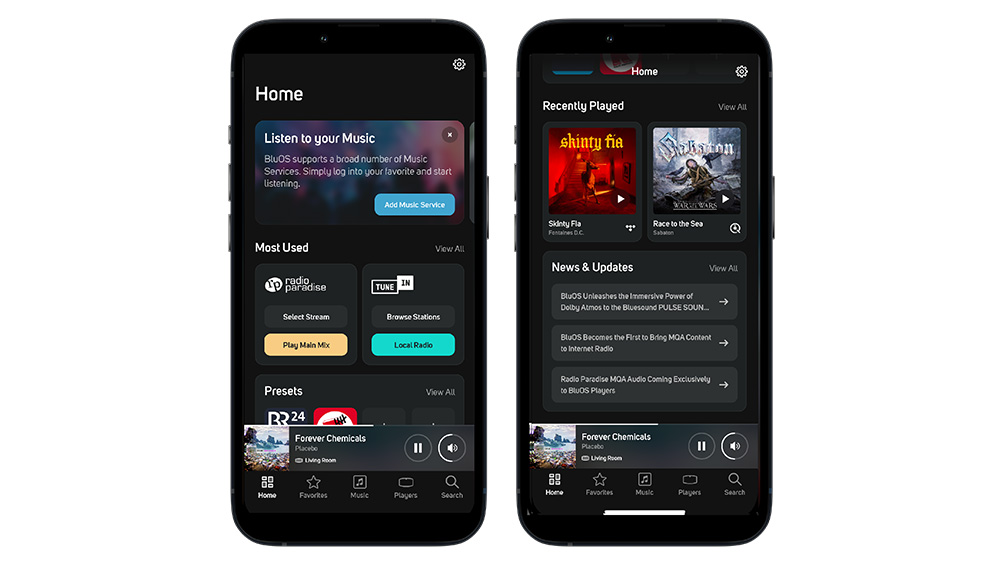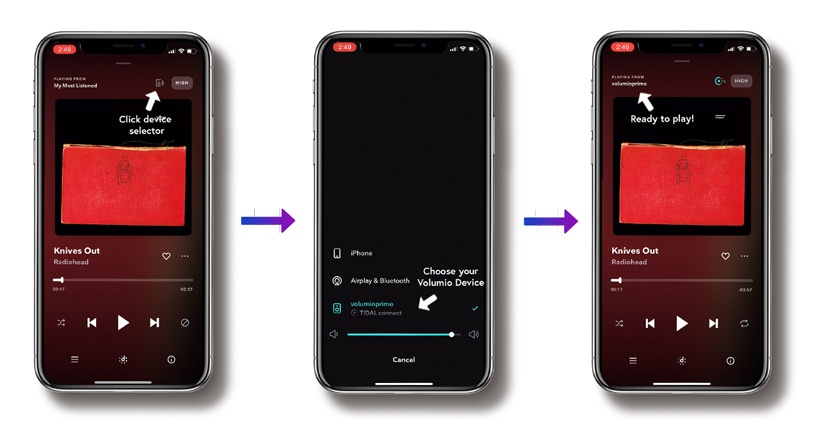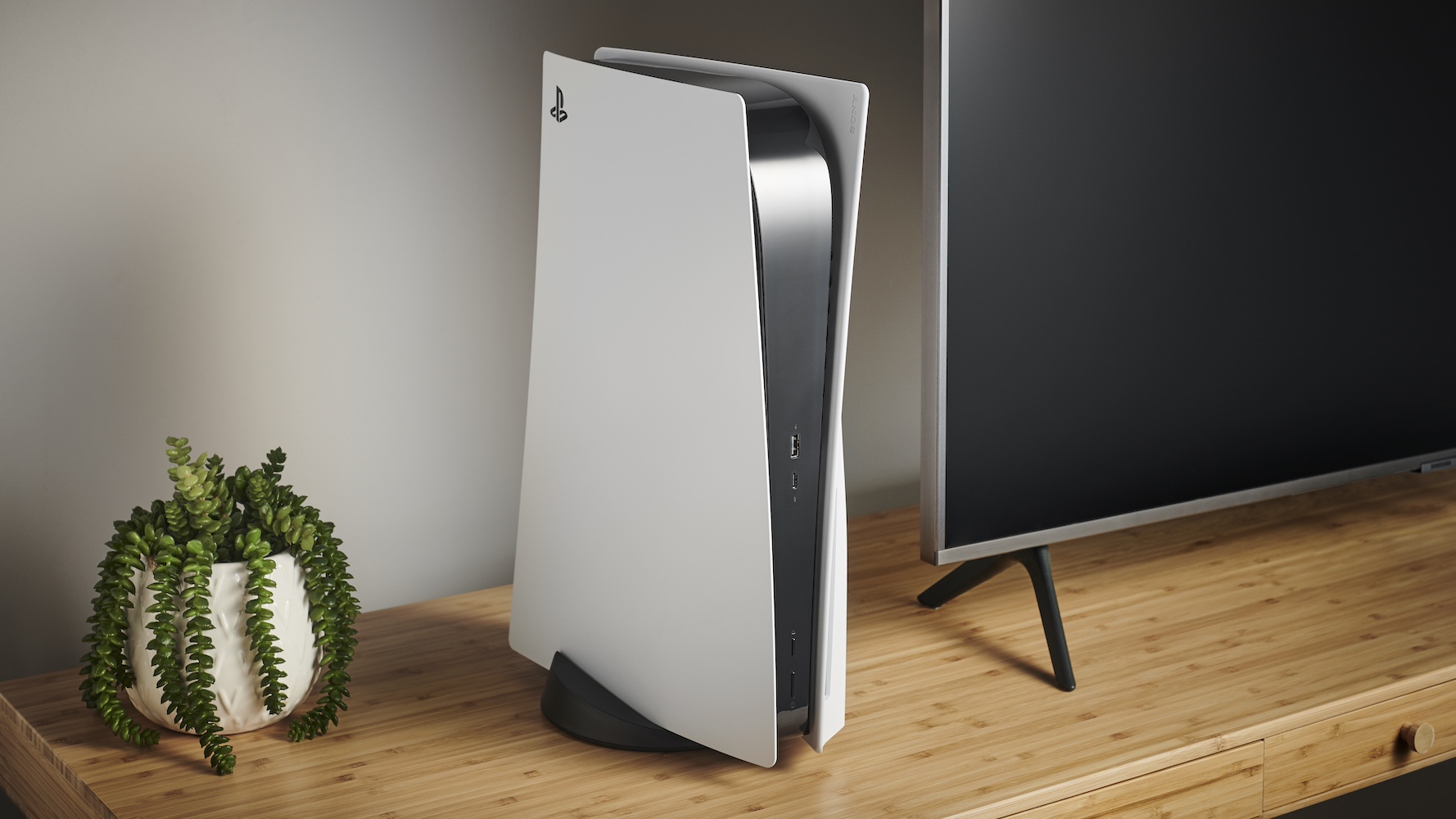‘Connect’ streaming has been a game changer, but I'd hate for hi-fi apps to die
They still have a place in the streaming stratosphere

Every year, new features and technologies arrive to push the boundaries of consumer electronics further than the year previous, but very few tend to enrich our daily lives immediately, whether that's because they aren’t instantly adopted by the masses or simply aren’t useful on such a frequent basis. Thinking about how my listening habits have changed in the past couple of years, I’ve realised that one fledgling feature has played more of a role in it than anything else: Tidal Connect.
For the uninitiated, Tidal Connect lets you ‘cast’ the music service's library to compatible audio devices straight from within the Tidal app, with the songs streamed from the internet as opposed to locally on your phone. As Spotify Connect does for, well, Spotify; AirPlay for Apple Music; and Google Cast for Amazon Music (and others – including Tidal, actually). The point is that these technologies let you control your music streaming playback from an app that’s familiar to look at and operate, meaning you don’t have to rely on using the separate dedicated app(s) developed for specific streaming products.
Spotify Connect has long offered in-app control, and the streaming giant has for years focused on improving its own app experience as opposed to maintaining and supporting third-party apps to bake the catalogue into theirs. (That’s why hi-fi manufacturers’ own apps no longer bake in Spotify's library.) AirPlay and Google Chromecast have also been around for a while and are increasingly supported by hardware manufacturers, meaning that thousands of streaming audio products (streamers, wireless speakers) can play several music services without needing their own software.
The rise of such streaming protocols has led to an increase in endpoint streamers, which essentially don’t have their own streaming platform (and app) as such but simply ‘rely’ on these protocols so that streams can be played and controlled directly from an owner’s music service of choice. The NAD CS1 is one example, supporting all those protocols I mentioned earlier but not the BluOS platform that other NAD streaming devices do, and which gives users a one-stop-shop BluOS Controller app from which to access (many) services’ libraries, organise multi-room setups, curate playlists and adjust EQ all under one umbrella. The ELAC Discovery Series Connect is a further example of a streamer driven solely by third-party solutions.
Now that Tidal Connect is being widely supported by hardware with their own app too, I’m finding I’m using those apps less and less as I’m satisfied streaming from the native Tidal app to various products in my house. Being a hi-fi reviewer naturally exacerbates the problem of having various brands’ apps all installed on my phone, but even at home I remember the not-too-distant days of being forced to juggle the DTS Play-Fi app for my streamer, the Sonos app for my Sonos Play:1, and the Naim/Focal app for my Mu-so Qb. Nowadays I first and foremost use Tidal Connect for most streamable products I own and, indeed, come across in my line of work. As someone who streams predominantly from Tidal, it’s pretty darn handy.

But – and it’s a big ‘but’ – I’d hate those dedicated brand apps to disappear. Firstly, the best ones tend to offer optimal multi-room control for multiple products within that brand’s (or family of brands’) catalogue. Secondly, most (except for the most basic ones) offer a library management and interface for files stored locally or on your NAS drive that are miles better than free alternatives like Bubble UPnP – a pretty big deal for those who primarily stream their own networked files. Thirdly, many offer exclusive in-app features that cannot be delivered through a third-party cast solution. And lastly, the most polished can be considered rather swish and welcome accessories for products (typically higher-end) that enhance them as desirable, luxury kit.
Some are just bloody nice to use (I'm looking at you, Linn, Bluesound and Aurender) and, besides, I don't know about you, but I find it reassuring to know one brand has control over hardware and software when it comes to the sound path, among various things.
Get the What Hi-Fi? Newsletter
The latest hi-fi, home cinema and tech news, reviews, buying advice and deals, direct to your inbox.
Running a software app and keeping up to date with all the licensing and updates requires a department of people for most brands, whether in-house or outsourced. So I’m not begrudging brands who don’t have a sophisticated one of their own – for many, it simply isn’t feasible from a resource and/or financial point of view, and so being able to support third-party protocols instead is a true enabler. But for those who have gone, and still go, to the trouble, I for one very much think it’s worthwhile – and not to mention ‘safe’. What if, say, the software goalposts change out of a brand’s control and one (or more) of the protocols their product(s) support no longer plays ball with a streaming service, or becomes no more altogether? Suddenly, that product is possibly less desirable or – worse – defunct. It’s arguably a slim risk nowadays considering how established many of these protocols are, but a risk all the same.
I can’t imagine dedicated brand apps lasting very long if an app-controlled music management platform as sophisticated and all-encompassing as Roon was free and not $150 per year, mind you. But in the current state of play and despite the downright handiness of streaming protocols like Tidal Connect, I think there’s plenty of life left in the brand playback app yet.
MORE:
Hi-res music streaming services compared: which should you subscribe to?
2023 was a good year for the all-in-one system, but can we have more please?
My success story of the year was also the biggest surprise
CD, streaming and vinyl: this versatile hi-fi system has it all
Becky is the managing editor of What Hi-Fi? and, since her recent move to Melbourne, also the editor of the brand's sister magazines Down Under – Australian Hi-Fi and Audio Esoterica. During her 11+ years in the hi-fi industry, she has reviewed all manner of audio gear, from budget amplifiers to high-end speakers, and particularly specialises in headphones and head-fi devices. In her spare time, Becky can often be found running, watching Liverpool FC and horror movies, and hunting for gluten-free cake.

